Shows

Marketplace TechTesla's full self-driving mode is actually not fully self-drivingTesla will soon allow more drivers to have access to “full self-driving” mode, according to tweets by CEO Elon Musk. Drivers will pay $10,000 upfront or between $100 and $200 a month to use the software. Up until now, a beta version has been available to a select group of people. And the name "full self-driving" kind of implies that the car will drive itself. But, as Tesla notes on its website, that is not the case right now — these cars will not be autonomous. Marketplace's Marielle Segarra speaks with Alistair Weaver, editor-in-chief at the car-shopping site Edmunds.
2021-09-3010 min
Marketplace TechSplashy tech events are still splashy … even online. By design.Amazon hosted its annual hardware event Tuesday, where it announced updates to some products, like its Ring home security system, and debuted some new ones, like a home security drone. Microsoft and Apple hosted similar events recently. You know the kind of event we're talking about, right? The kind pioneered by Steve Jobs. Big screens, fancy visuals, open bar, fancy food — maybe they've got an omelet station going. That's how they used to be in person. Marketplace's Marielle Segarra speaks with Ian Sherr, an editor at large at CNET, who has been to a lot of these.
2021-09-2911 min
Marketplace TechConsider the curated life: Facebook pauses Instagram Kids rolloutFacebook just announced that it's pausing the rollout of Instagram Kids, a version of the platform for children under 13 years old, while it works to "demonstrate the value and need for this product.” The pause comes after a Wall Street Journal story a couple of weeks ago about the company's research on how Instagram affects teens. One finding? A third of teen girls who have body image issues say Instagram makes them worse. Marketplace's Marielle Segarra speaks with Jean Twenge, author of the book “iGen: Why Today’s Super-Connected Kids Are Growing Up Less Rebellious, More Tolerant, Less Happy — and Complete...
2021-09-2808 min
Marketplace TechTired of robocalls? The FCC is stillllll trying to stop them.In the U.S., about 20% of calls to cellphones and 40% to landlines are robocalls — many of them scams. Tuesday is the deadline for voice service providers, including some phone companies, to show the Federal Communications Commission what steps they're taking to stop robocalls. Marketplace's Marielle Segarra speaks with Brad Reaves, a professor of computer science at North Carolina State University. Reaves said the FCC is telling these companies to be on the lookout for clear signs of fraud.
2021-09-2707 min
Marketplace TechHey kid, see you in the metaverse?Next month, Epic Games will shut down Houseparty — the group video-chatting app that became popular in the pandemic — to focus instead on the metaverse. But, what is that, exactly? That is a topic for “Quality Assurance,” where we take a second look at a big tech story. While there are different visions of the metaverse to come, most digital builders and watchers believe the metaverse is essentially the next evolution of the internet, a virtual world that you'd move through with, some say, just one identity, not a bunch of separate logins or accounts. And you could do things in it like...
2021-09-2409 min
Marketplace TechNew emoji are about to drop, but where do they come from anyway?Emoji users: Your vocabulary is about to grow. The Unicode Consortium, a group that approves emoji, has added 112 new ones, including a melting smiley face, a coral reef, an X-ray and more skin tone and gender options, like a pregnant man and pregnant person. The new icons will start appearing on your phones later this year. Marketplace's Marielle Segarra speaks with Jeremy Burge, chief emoji officer at Emojipedia, an encyclopedia for emoji. Burge talked about how emoji get approved and what happens when companies lobby for an emoji of one of their products.
2021-09-2311 min
Marketplace TechWearable technology keeps hooking people as COVID lingersDuring the pandemic, especially with gyms shut down or just less appealing, people bought a lot of wearables. Those are smart devices that you wear on your body — in your ear, on your wrist or as a patch, even — that track your activity in some way. Look at sales of smartwatches. They jumped by almost 18% in 2020, according to Gartner. The research firm also forecasts that spending on wearables will grow to more than $81 billion by the end of this year. Marketplace's Marielle Segarra talked to Ramon Llamas, a research director at International Data Corp., about why wearables got so popular duri...
2021-09-2207 min
Marketplace TechAmid massive rainfall and deadly flooding, how does tech help identify risk?World leaders are gathering for meetings this week at the United Nations General Assembly in New York. Among the topics they’ll discuss is the ravages of climate change. This year, climate damage across the U.S. included devastating flooding, and while some people know they face flood risk, many do not. That’s largely because the official federal flood maps are often outdated and may not account for the effects of increasingly powerful storms. We wanted to know how technology is advancing the mapping effort. Marketplace's Jed Kim speaks with Michael Grimm, assistant administrator for risk management at FEMA, who...
2021-09-2109 min
Marketplace TechPatent applications reveal how tech companies may further threaten privacy for people in prisonFor those in prison, privacy is already hard to come by. Now, the Electronic Frontier Foundation is looking at patent applications from some companies that provide communication services to prisons. Some of the applications they’ve seen include ideas to incorporate ads on tablets that would be given to incarcerated people and plans for systems that would identify and disable drones suspected of bringing in contraband. Marketplace's Jed Kim speaks with Beryl Lipton, an investigative researcher with the EFF. Lipton says there are even ideas for robot guards that could deliver packages or electric shocks, depending on the situation.
2021-09-2008 min
Marketplace TechNow we know some of what Facebook knows about how it's hurting usFacebook knows a lot about how it affects its users, because it’s investigated possible negative impacts. For instance, internal research showed that one of its algorithms actually encourages angrier content. Or that Instagram, which it owns, makes body image issues worse for teen girls. And even though it knows all this, it doesn’t share the information, either with Congress or its own oversight board. That’s the finding of an investigation out this week from The Wall Street Journal, called the Facebook Files. It’s a topic for "Quality Assurance." Marketplace's Jed Kim speaks with Jeff Horwitz, a reporter...
2021-09-1709 min
Marketplace TechThere's still a lot to learn about buying now and paying laterThere’s been a surge in the buy now, pay later space, which is exactly what it sounds like: Get something you maybe can’t quite afford and pay it off in installments. You might not even need to have your credit checked. By some counts, more than half of Americans have used it. There are concerns that this new method of payment could be confusing us about what we want versus what we need. And now Affirm, a leader in this space, is partnering with Amazon. Marketplace's Jed Kim speaks with Max Levchin, CEO of Affirm. Levchin believes the new...
2021-09-1609 min
Marketplace TechFacebook is taking a run at the whole cameras-in-glasses thingYou’d look so good in these Ray-Bans, and you could capture the envious stares of people who can’t believe how good you'd look. Because these glasses are built through a partnership with Facebook. They allow you to take photos and share video via cameras in the frame. It’s the latest attempt by Silicon Valley to reap bundles of money by using tech to make glasses more than glasses. Google and Snap have also attempted it. We here at "Marketplace Tech" are a camera-shy group, and the prospect of many more cameras makes us nervous. Marketplace's Jed Kim speaks...
2021-09-1505 min
Marketplace TechBig Tech is finally seeing the dollar signs seniors representApple’s streaming event from California happens today and many expect there’ll be an announcement of a new iPhone model. Speculation always abounds, because Apple is notoriously tight-lipped with these events. One thing that they have announced is a new feature in iOS that pays attention to how we walk, or our gait. The idea is that it’ll be able to tell if something’s changed about a senior citizen’s gait and that could give early warning of a fall. Marketplace's Jed Kim speaks with Dominic Endicott, a partner and director at Northstar Ventures, which invests in “age tech.” E...
2021-09-1412 min
Marketplace TechLooking for worms in Apple leaves a bad taste in ethical hackers’ mouthsBug bounties. They're an important security tool in the arsenal of many tech companies. Here's how they work. Give ethical hackers the chance to probe your systems for weaknesses, pay them for exploits they find and fix said exploits before ne'er-do-wells find and use them. Bounty programs vary from company to company. Marketplace's Jed Kim speaks with Reed Albergotti, a tech reporter for The Washington Post who wrote about widespread dissatisfaction with how Apple pays its bounties and the ways it limits communication about the bugs hackers find — all problems that may hurt security for Apple users.
2021-09-1312 min
Marketplace TechStorms are getting stronger. So how do we adapt?Friday marks the statistical peak of the Atlantic hurricane season, which has already been a very active and destructive one. Marketplace's Jed Kim continues his discussion with Paul Robinson about how tech can help us cope with flooding. Robinson's executive director of RISE Resilience Innovations, a nonprofit tech accelerator in Norfolk, Virginia. It supports a wide range of startups that are focused on climate resilience. Some aim to train up a workforce that’s ready to do flood-resistant construction. Others try to aid our adaptability, like developing apps that predict and monitor flooding and map it in real time.
2021-09-1009 min
Marketplace TechFlooding is getting worse. Can tech help us deal with it?Water infrastructure — it's boring. Invisible. We only care about it when things go wrong, and things have been going wrong. Punishing storms have caused catastrophic flooding in New York, Texas, Louisiana and elsewhere. But water systems are expensive, time consuming and hard to fix. Technology may provide some relief. Marketplace's Jed Kim talks to Paul Robinson, the executive director of RISE, a nonprofit accelerator in Norfolk, Virginia, that helps develop climate tech. Robinson says one of the companies they fund is StormSensor, which puts sensors in storm and sewer pipes
2021-09-0908 min
Marketplace TechThe business of editing genes to battle disease is bringing in record fundingWhen you’re sick, you can get treated with medicine or surgery. There’s a growing field, though, that looks at our own cells as treatment delivery systems. Many see it as the future of medicine, and that’s prompting a lot of investment in the field. This year, the industry is on track to raise more than $20 billion dollars, a record. That's according to the Alliance for Regenerative Medicine, an advocacy group whose members include universities, foundations and major biopharma companies like Pfizer, Bayer and Johnson & Johnson. Marketplace's Jed Kim talks to Janet Lambert, their CEO.
2021-09-0808 min
Marketplace TechEl Salvador becomes the first to make bitcoin a national currencyStarting today, bitcoin is an official national currency in El Salvador, along with U.S. dollars. To use the cryptocurrency, Salvadorans need to download an electronic wallet. If they use the government-sanctioned wallet, they'll get $30 worth of bitcoin to use. Stores have to accept bitcoin, provided they have internet access and can do so. They'll still take American dollars. In the past six months, the value of a bitcoin has fluctuated by as much as $30,000, so how it'll go is anyone's guess. Marketplace's Jed Kim speaks with George Selgin, who directs the Center for Monetary and Financial Alternatives at the...
2021-09-0709 min
Marketplace TechThe right to repair broken tech is key to farmersThis episode originally aired July 19, 2021.The Federal Trade Commission is turning its attention to the right-to-repair movement — a pushback against manufacturers limiting who can repair the equipment they make. The agency put out a report on this in May that found “the burden of repair restrictions may fall more heavily on communities of color and lower-income communities.” One group watching this debate is farmers, as some companies that make farm equipment only allow repairs at their own dealerships. Kimberly Adams speaks to Terry Griffin, an agricultural economist with Kansas State University. He grew up on a farm in northeast Arkans...
2021-09-0604 min
Marketplace TechApple and Google's app stores have been fortresses of commerce. South Korea fired a cannonball.When buying apps or making in-app purchases, you’re pretty much limited to either Apple or Google's systems, and those companies are paid a commission of up to 30% on your purchase. South Korea this week passed a law that will force them to allow alternative payment systems — ending commissions when developers sell things directly. It comes as Apple and Google are under pressure from antitrust regulators around the world. Marketplace's Jed Kim speaks with Nick Statt, a reporter at Protocol, who says South Korea's law is a big deal for developers.
2021-09-0311 min
Marketplace TechAmazon had a weird week on Twitter. But the union vote is the big news.Votes are being counted in Bessemer, Alabama, this week from Amazon warehouse workers considering whether to unionize. Amazon has fought tooth and nail against the union effort and also against members of Congress. Sens. Bernie Sanders and Elizabeth Warren criticized its treatment of employees, and Amazon’s official Twitter account went on the attack. So did some Twitter users claiming they were very happy Amazon employees, and not all of them were real. Molly speaks with Jason Del Rey, who covers Amazon for Recode. He said this union vote is big, no matter the outcome.
2021-04-0212 min
Marketplace TechCreating diverse venture capital firms is possible, if you're willing to do itVenture capital firms are known for being an incredibly exclusive group. The firms themselves are often small. Even smaller is the number of partners, the actual decision-makers who control hundreds of millions — sometimes billions — of dollars. At the biggest firms, there might be a dozen partners maximum. And if you're an entrepreneur who wants some of that money, it definitely helps to have gone to college with one of those partners. Kapor Capital is trying to be more inclusive in whom it promotes and funds. One way it's different: It finds founders primarily through a submission form on its website inst...
2021-04-0107 min
Marketplace TechTech investor Mitch Kapor is proving investing for social good can make moneyThere's an idea that's long been gospel in the venture capital industry, that investing in companies that have a positive social impact is a money loser — impact investing is "concessionary." But what if it isn't? Mitch Kapor is a well-known tech investor. He helped create the Lotus 1-2-3 spreadsheet and was an early Uber investor. But for the past decade, Kapor and his wife, Freada Kapor Klein, have focused on companies that they say fill a gap, whether it's social, information or opportunity. And in 2019, their firm, Kapor Capital, reported that in fact it does make money. Lots of it...
2021-03-3109 min
Marketplace TechThe corporate forces that helped shape AI"Artificial intelligence" is now a household term, whether it's powering driving directions, spotting tumors in cancer patients or driving big discussions over ethics, bias, autonomous weapons or the future of work. But despite the fact that the first neural network was created in the late 1950s, a lot of those advancements have taken place over only about 10 years. In his new book, “Genius Makers: The Mavericks Who Brought AI to Google, Facebook, and the World,” New York Times tech correspondent Cade Metz writes about the history of AI and the corporate forces that have shaped it since the mid-2000s.
2021-03-3010 min
Marketplace TechInvestors are throwing money at mRNA and new medical technologies. What could go wrong?We've been talking about all the potential of mRNA technology — better vaccines and virus detection for all kinds of diseases. Now, let's talk about the money because the rush is on to invest in mRNA and the whole field of synthetic biology, which approaches the body and natural systems as programmable platforms like computers. However, the history of Silicon Valley and medical tech is mixed. You remember Theranos. Just last week, the founders of a once-hot biotech firm called uBiome were charged with fraud in a similar fashion. Molly speaks with John Cumbers, the founder of SynBioBeta, a network for en...
2021-03-2908 min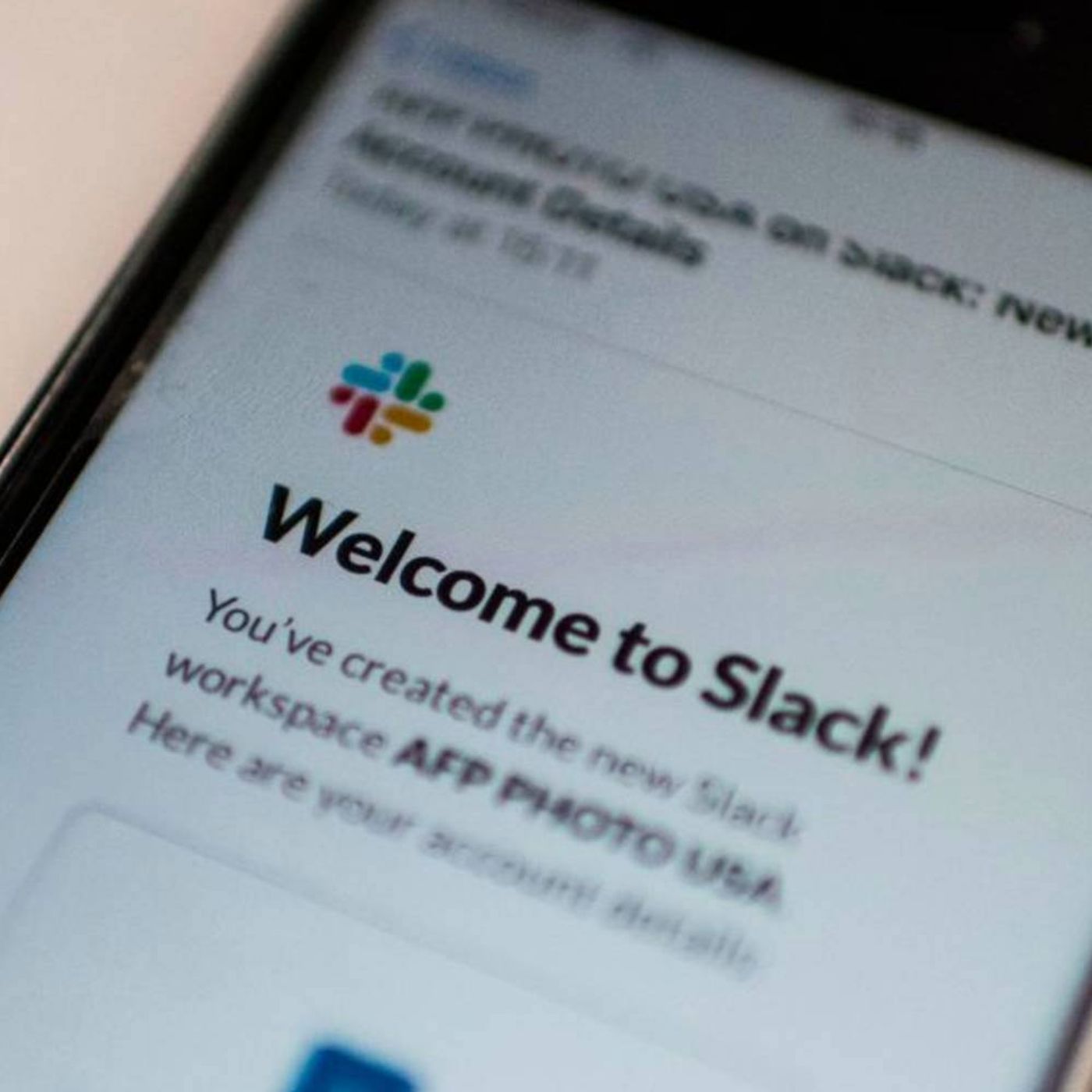
Marketplace TechHow to imagine the worst possible use of your product, and then stop it from happeningSlack rolled out a new feature this week to let people connect with anyone, even if they don't work in the same company. One flaw became immediately obvious: Anyone with your email address could send you a connection invite and a message that could be harassing or harmful. Slack promptly changed the feature, and invites no longer contain customized messages. But it made us wonder: How can companies do a better job anticipating how features could be harmful and fix them before they get rolled out? Molly speaks with Sarah Kunst, managing director of Cleo Capital.
2021-03-2609 min
Marketplace TechMessenger RNA technology might kick-start a new age of vaccinesThe COVID-19 vaccines from Moderna and Pfizer are in many ways modern miracles. As you know by now, they were developed using technology called messenger RNA, or mRNA, which basically gives the body instructions to create antibodies for the novel coronavirus. It’s the first time a vaccine has been developed in this way. And now that we have this technology, we can start using it on all kinds of viruses, like the flu. Molly speaks with Andrew Hessel, a geneticist and microbiologist. He co-founded Genome Project-write, an international research effort.
2021-03-2509 min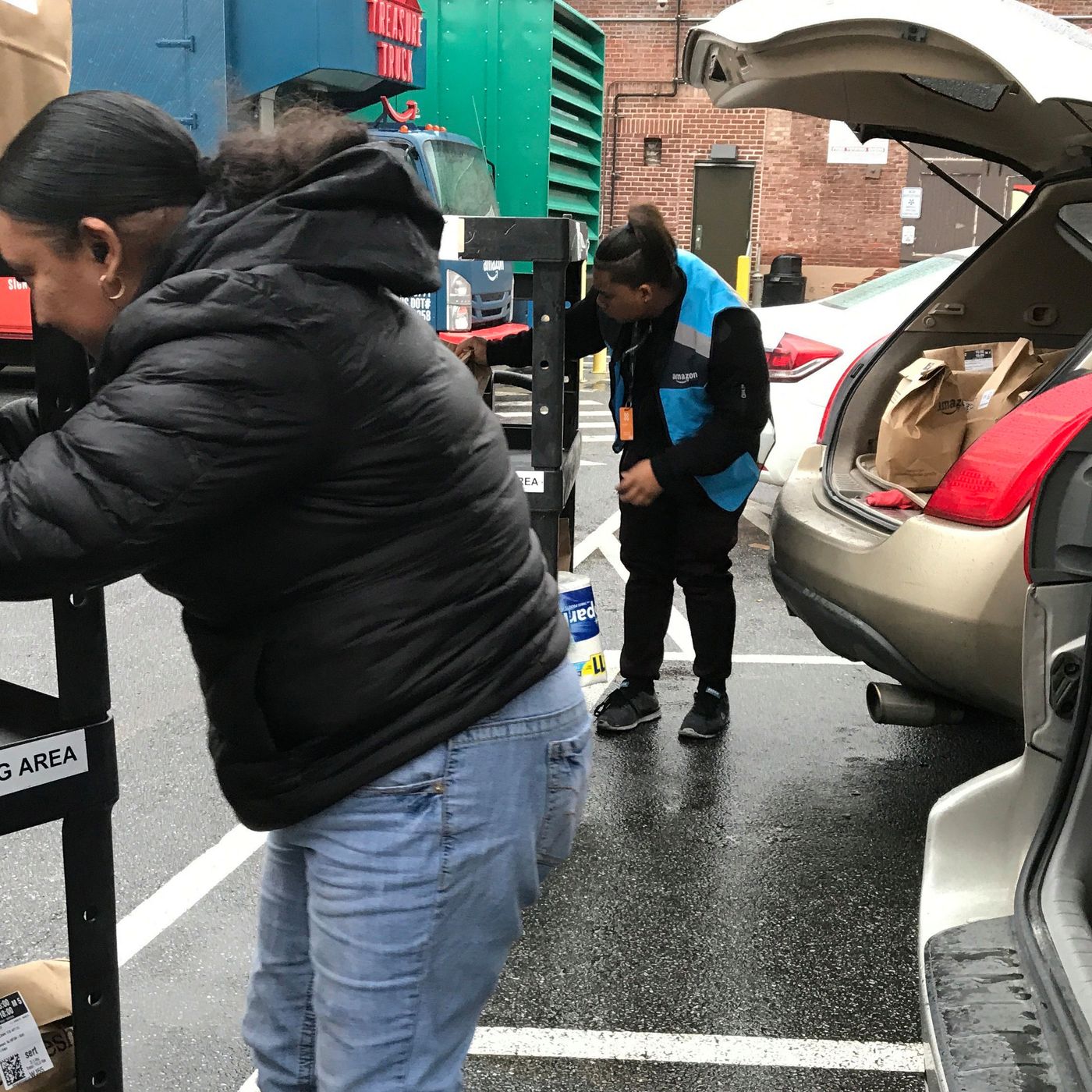
Marketplace TechGig work has helped a lot of people get through this pandemicThis pandemic is the story of lots and lots of deliveries, of groceries, packages and medicine. Companies including Instacart, Amazon and DoorDash use armies of independent contractors that aren't employees to get those goods out. "Marketplace Tech" producer Stephanie Hughes rode along with a driver for Amazon's Flex program before the pandemic began to give us a sense of what that work is like.
2021-03-2406 min
Marketplace TechMisinformation about COVID-19 planted a seed for online hate speechTuesday marks one week since the mass shootings in Atlanta that killed eight people, including six Asian women. Police have not labeled the attacks a hate crime. But we know that hate crimes against Asian Americans have been on the rise. Researchers at California State University, San Bernardino, looked at police data from 16 American cities and found that anti-Asian hate crimes more than doubled in 2020. At the same time, online hate speech against Asians has spiked. So as we think about these attacks, what do we know about online hate speech and how it translates to real-world violence? Marielle Segarra...
2021-03-2307 min
Marketplace TechBias in facial recognition isn't hard to discover, but it's hard to get rid ofJoy Buolamwini is a researcher at the MIT Media Lab who pioneered research into bias that's built into artificial intelligence and facial recognition. And the way she came to this work is almost a little too on the nose. As a graduate student at MIT, she created a mirror that would project aspirational images onto her face, like a lion or tennis star Serena Williams. But the facial-recognition software she installed wouldn't work on her Black face, until she literally put on a white mask. Buolamwini is featured in a documentary called “Coded Bias,” airing tonight on PBS.
2021-03-2211 min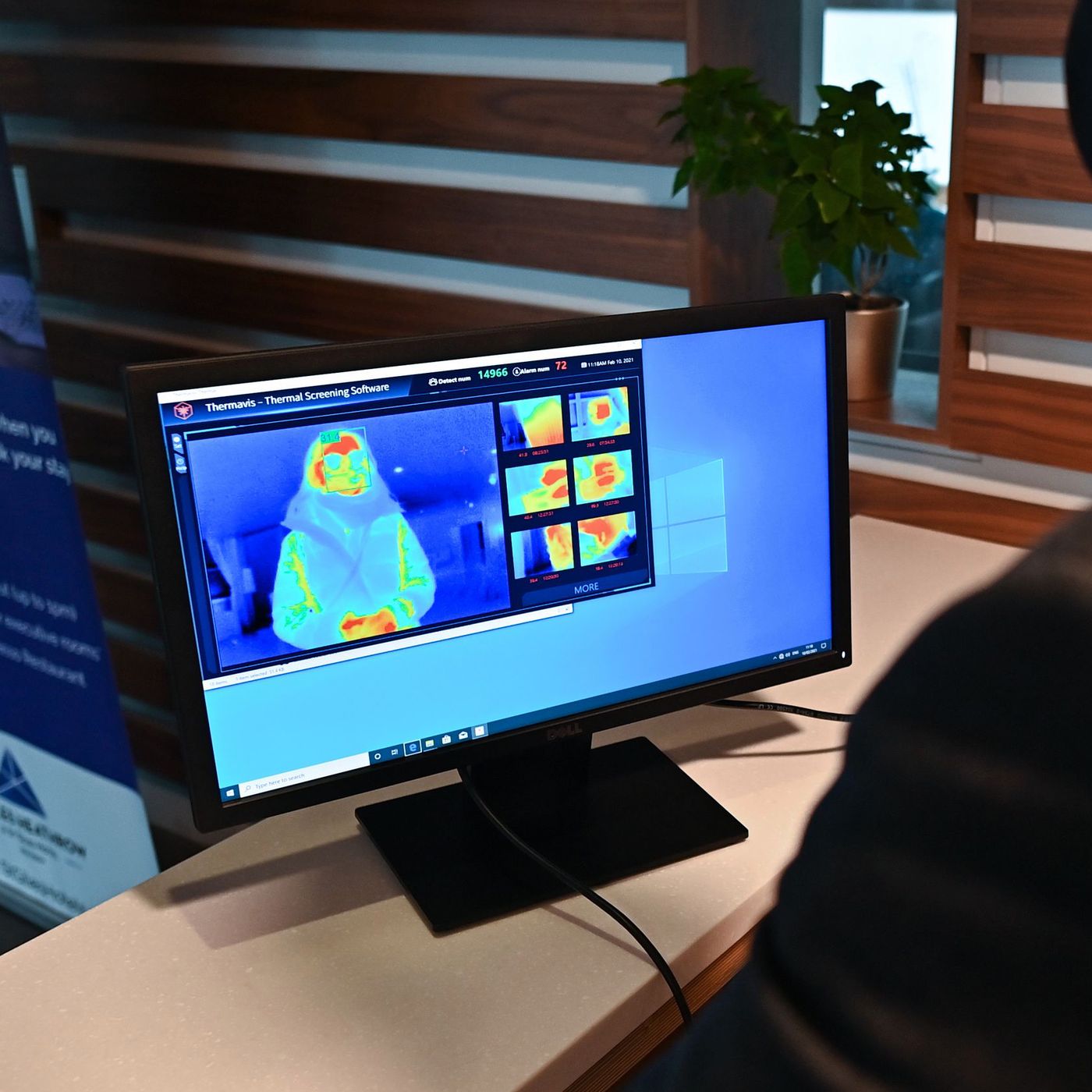
Marketplace TechFever-screening devices used in many places are not helping control the pandemicAt the beginning of the pandemic, almost exactly this time last year, we heard a lot of promises about the types of technology that could help us stop the spread of the disease. One of those tech miracles was thermal cameras — devices that could read someone’s temperature from a distance. Companies bought them in droves, thinking that installing them at the entrances of schools, airports or offices could stop sick people from entering. But do they work, and did they ever? Molly speaks with Conor Healy, the government director at IPVM, a video-surveillance research firm. He recently co-authored a stud...
2021-03-1810 min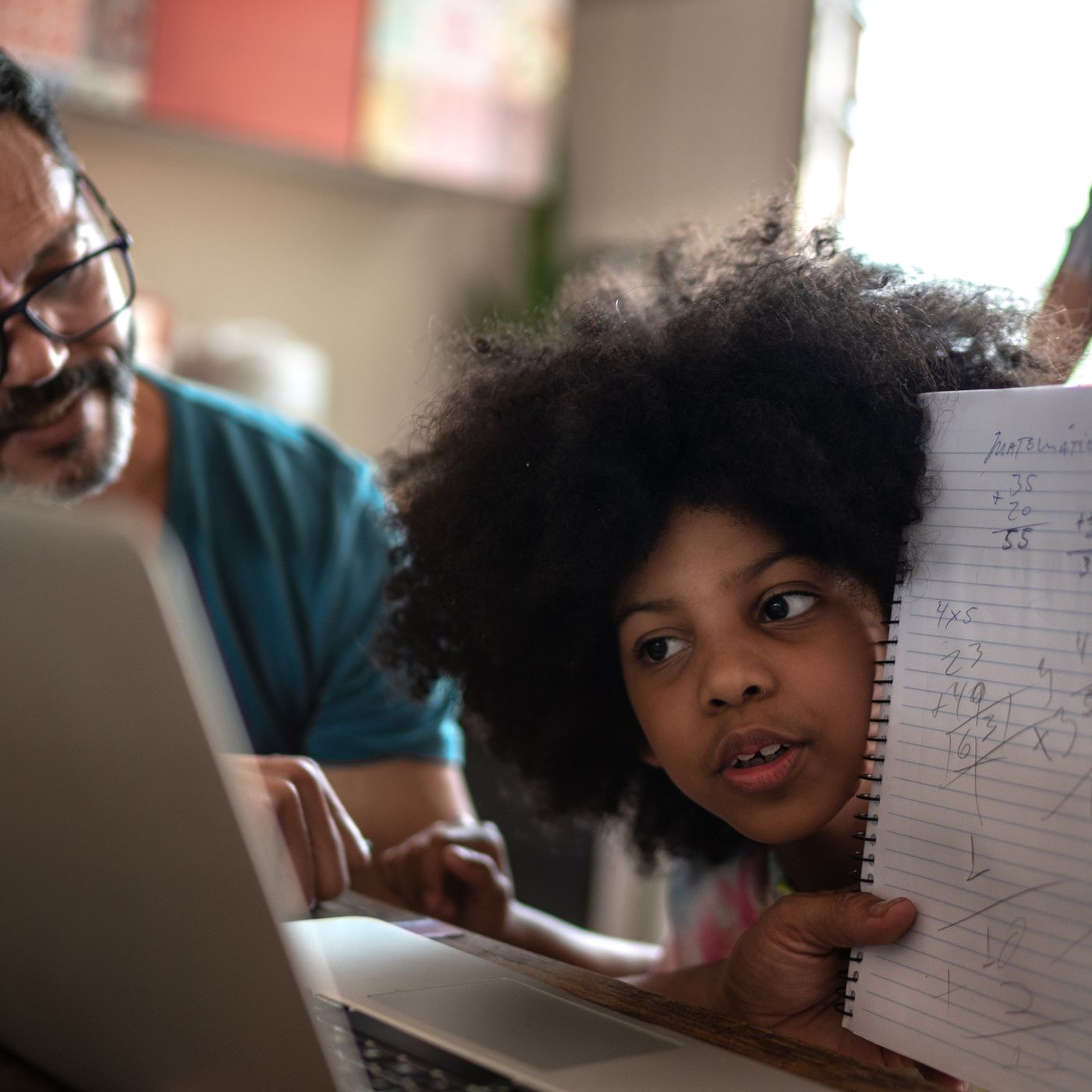
Marketplace TechOur experiment in remote schooling could improve education, if we do it rightThe transition to remote learning exposed a deep digital and device divide, inequality among schools and a lack of preparation for online learning. But some of what we learned, no pun intended, could improve schooling in the future and prepare us for the next disruption. That will take money, political will and stamina. Molly talked with Laura Ruderman, CEO of the nonprofit Technology Alliance, focused on Washington state. This year, the group released a report called “Learning From Calamity.”
2021-03-1709 min
Marketplace TechAT&T says wireless won't be a last-mile replacement for fiberWe're looking back on a year of life under the pandemic, and it's clear that the internet remains everything. As long as you have access. The year showed us just how much that infrastructure could use some improving. We called one of the country's biggest internet and wireless providers, AT&T, which has been criticized for rolling out high-speed fiber to only about 30% of the homes in its 21-state territory. The company says it's investing heavily in 5G. It just spent $23 billion on wireless spectrum. The person in charge of building out these networks is AT&T Communications CEO Jeff...
2021-03-1612 min
Marketplace TechSex workers pivoted to OnlyFans, but there are a lot of amateurs there, tooA lot of people saw their jobs change dramatically during the pandemic. Among them, as you might imagine, are sex workers, who suddenly found their in-person jobs way too dangerous. Many turned to digital platforms, specifically the app OnlyFans, which lets creators post and get tips, subscription revenue and even set up pay-per-view events. In theory, anyone can use OnlyFans, but it's home to a lot of adult content, and sex workers have found themselves learning how to be creators and battling for attention among all kinds of other would-be influencers. Molly Wood speaks with Erika Beras, a reporter for...
2021-03-1107 min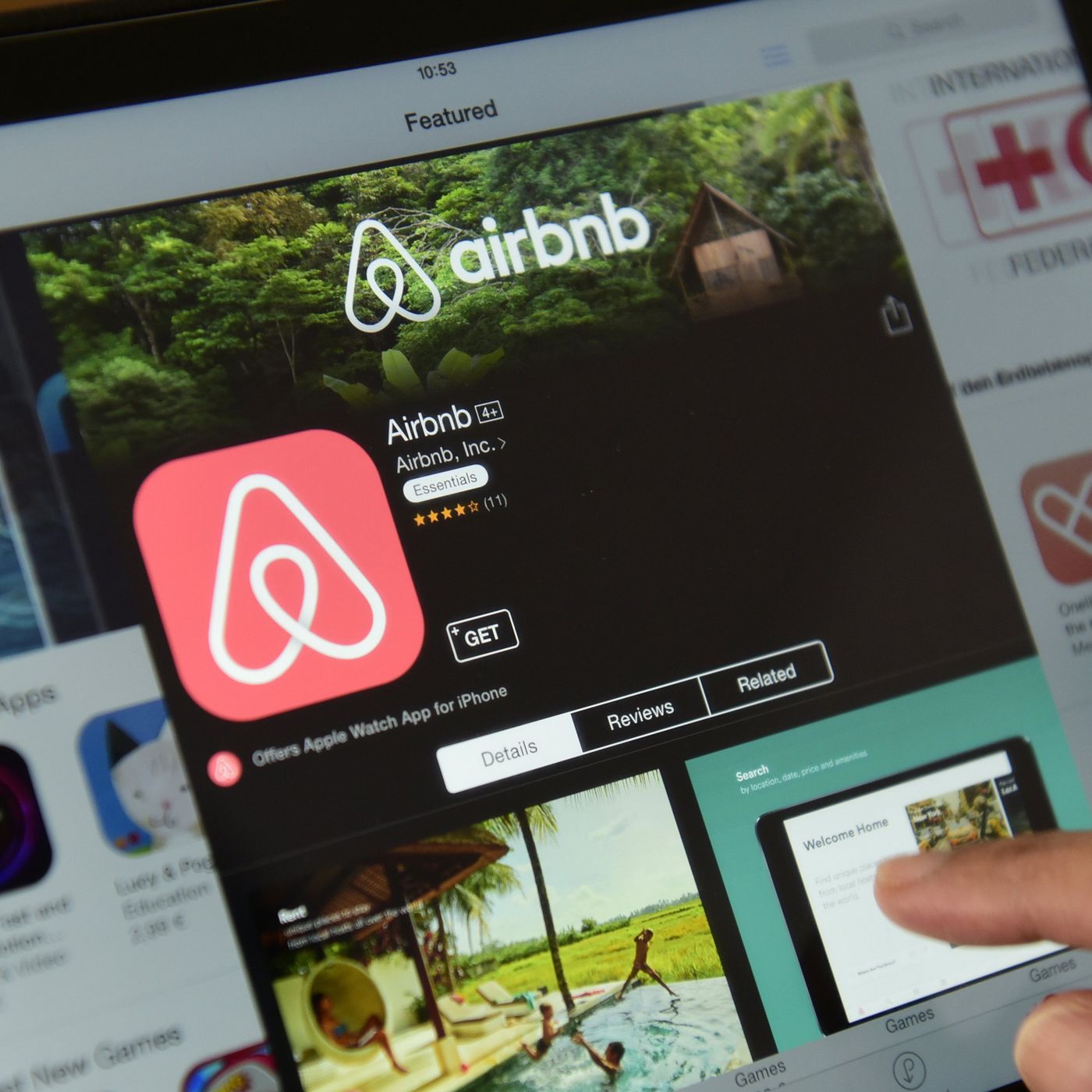
Marketplace TechAirbnb CEO Brian Chesky says post-pandemic, cities might actually want the company aroundIt has been a roller-coaster year for a lot of businesses, few more than Airbnb. The company saw an 80% drop in business last spring as the pandemic hit. It laid off a quarter of its employees, raised $2 billion in private funding and hurried the heck up and introduced Online Experiences like virtual cooking classes to try to make any money at all. But by December, it had recovered enough for a blockbuster initial public offering and a profitable third quarter. Now the company is preparing for the return of its core business and its preexisting challenges, like being blamed for...
2021-03-0812 min
Marketplace TechGoogle is changing the way ad tracking worksGoogle is getting rid of third-party cookies in its Chrome browser next year and will stop selling ads based on your browsing history. No more tracking you all over the web and targeting you with ads everywhere you are. The company also said in a blog post that it won't replace cookies with another personal tracking technology. Google is moving to a “privacy first” strategy in which your online profile will be grouped anonymously with others like you, and you'll get ads appropriate to your cohort. Molly spoke with Meg Leta Jones, a professor of communication, culture and technology at Georg...
2021-03-0409 min
Marketplace TechWe're using tech to solve all our problems. But plenty of people still have problems with the tech.Part of the problem with the COVID-19 vaccine is that the tech to get it isn't accessible to the people who need it most. Online-only appointment systems are leaving out people without internet access or devices, and clunky, buggy websites are testing everyone's digital literacy. For Nicol Turner Lee, a fellow at the Brookings Institution, it's part of a bigger problem that needs a big solution. We've got tech that's unevenly distributed, plus a struggling economy that needs to transition to the digital age. So Turner Lee proposes that big solution in a recent piece for Brookings: a Tech New...
2021-03-0305 min
Marketplace TechAs telecoms spend billions on wireless, where does that leave the wired?Telecom companies are spending a lot of money on wireless infrastructure to support their 5G networks. In an FCC auction announced last week, Verizon spent $45 billion on acquiring new spectrum. AT&T spent $23 billion. But wired infrastructure is not seeing the same kind of love. AT&T has stopped connecting new customers to its DSL network, and a report out last fall found that it has deployed high-speed fiber to only about a third of the households in its network. Molly talks with Angela Siefer, the executive director of the National Digital Inclusion Alliance.
2021-03-0108 min
Marketplace TechDoes Clubhouse owe its Black users for the platform’s success?Clubhouse is an invite-only audio app that came out last spring with a very small community of, at the time, mostly Silicon Valley tech-y people in it. Now, the app has 10 million active users on a weekly basis and a valuation of about $1 billion. And although there was recent buzz about SpaceX and Tesla CEO Elon Musk going on the platform, or even Facebook CEO Mark Zuckerberg, many of the people who have driven Clubhouse’s growth have been Black influencers, musicians and comedians. Molly speaks with Aniyia Williams, a principal on the responsible technology team at Omidyar Network.
2021-02-2612 min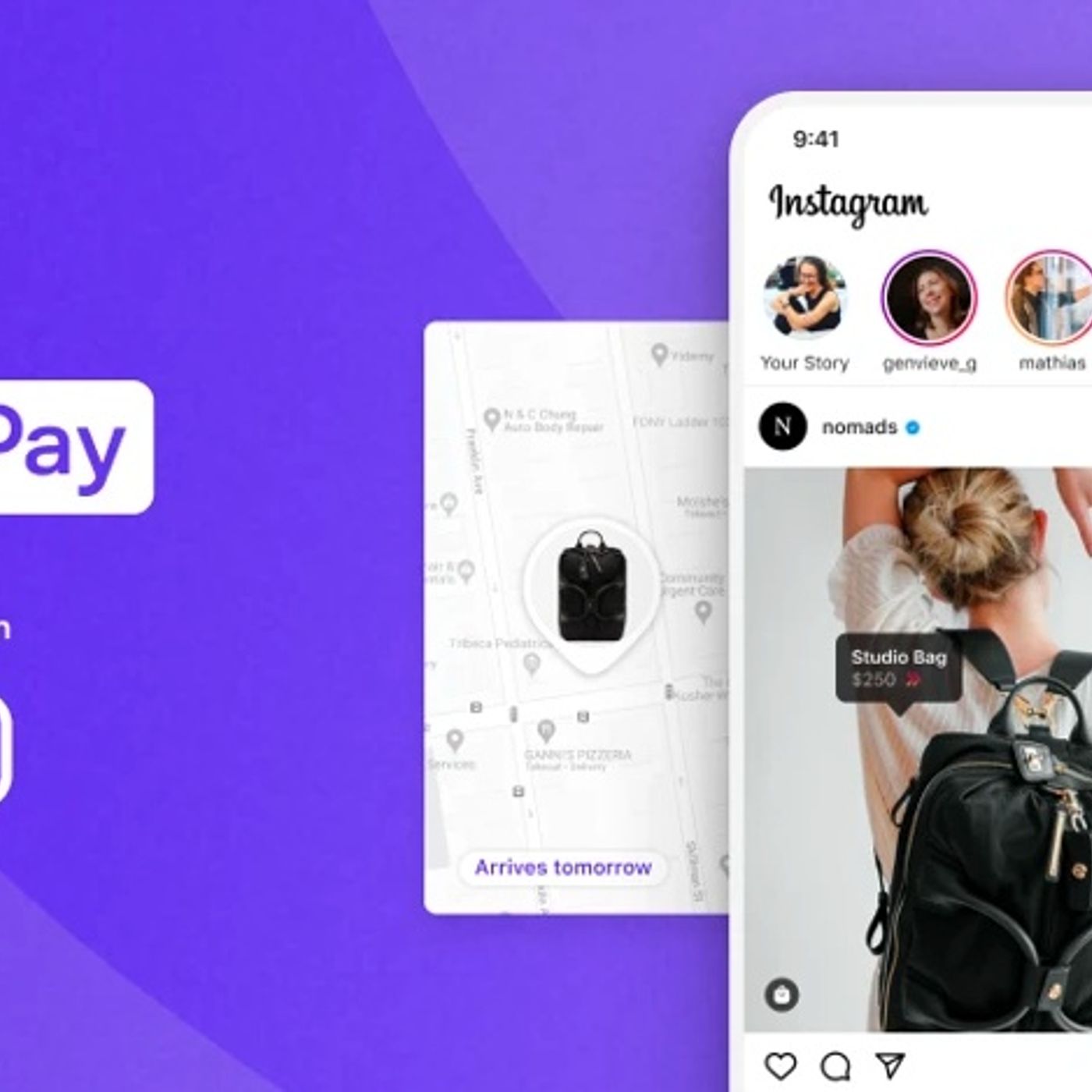
Marketplace TechShopify is taking on e-commerce giantsSmall businesses rushed to get online during this pandemic. And suddenly, all kinds of companies wanted to help with that: Amazon, Facebook, Etsy, Intuit and Shopify, the Canadian company that helps merchants create websites, enable payments and ship goods to customers. Shopify had unprecedented growth last year. It revamped its Shop app, which tracks shipments, to include local shopping collections. And it's got deals with so-called marketplaces, like Facebook and Instagram, Walmart and Google, to let merchants on its platform also sell on those platforms. Molly speaks with Harley Finkelstein, the president of Shopify. He told her a draw for...
2021-02-2509 min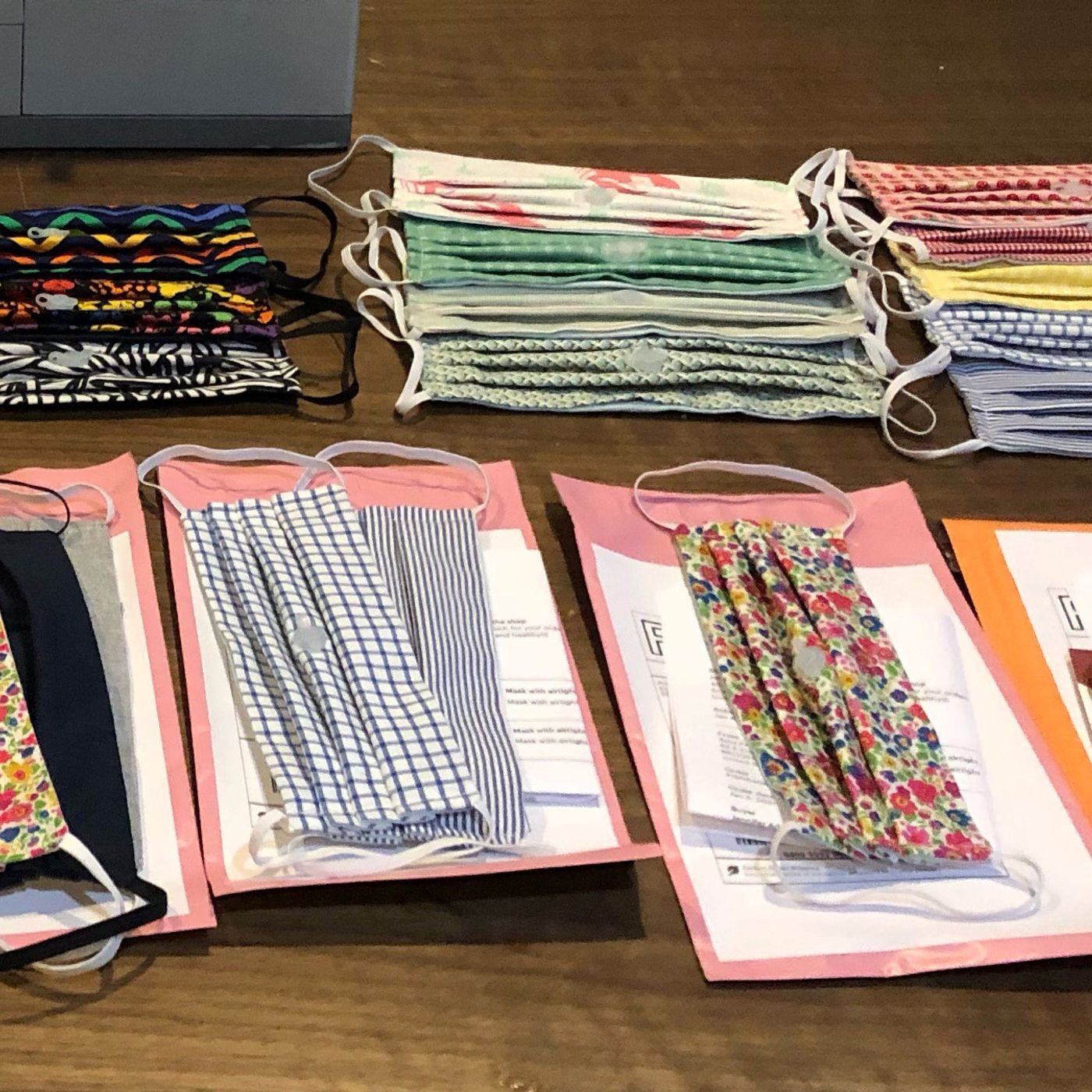
Marketplace TechHow a crafty creator took her business online while Broadway's darkEtsy has added at least 1 million new sellers to its platform since the pandemic began. We'll find out the latest numbers when the company reports earnings this week. One of those new sellers is Amy Price. She's a Broadway costume designer, or at least she was when Broadway shows were running. Now, she's turned her stitching to face masks. As part of our series "My Economy," here's the story of how Price got an online business up and running.
2021-02-2205 min
Marketplace TechFilling the archives with stories from Black Silicon ValleyWe've talked about how the accomplishments of Black inventors were literally left out of the history books documenting the early internet. Now, Meghan McCarty Carino speaks to researchers who are preserving that history. In late 2019, archivists from Stanford University met with over a dozen Black engineers and entrepreneurs who had been working in the tech industry for decades to hear their stories.
2021-02-1906 min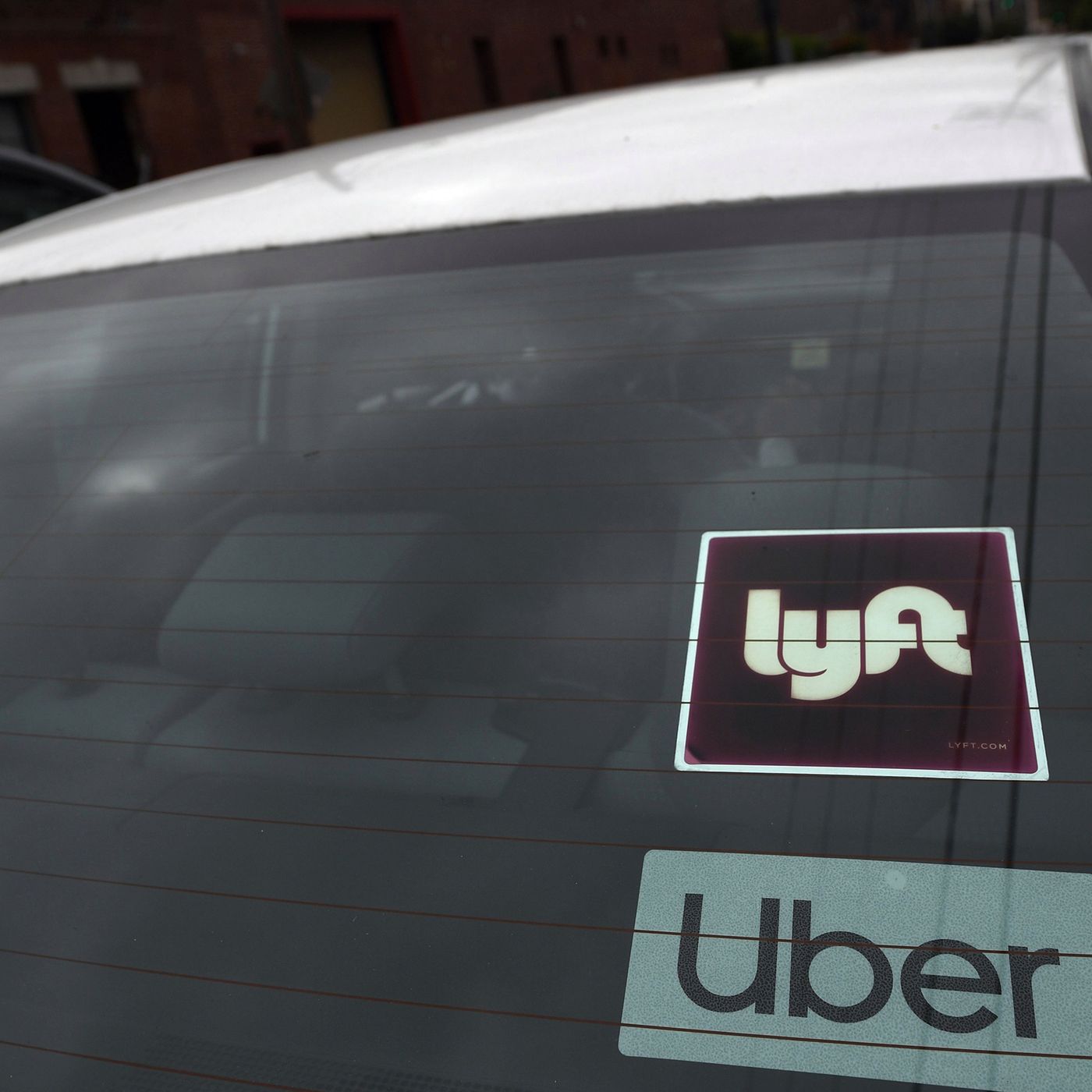
Marketplace TechGig companies have the upper hand. So why are they still negotiating?Platforms like Uber, Lyft and DoorDash emerged big winners from the 2020 election when California voters approved Proposition 22. The ballot measure keeps gig workers classified as independent contractors, rather than employees who qualify for full benefits and protections, including the right to join a union. It had looked like gig companies were ready to take this playbook to other states to basically create their own labor laws at the ballot box. But now, we're seeing signals the companies and labor unions might be willing to talk to head off more Prop 22-style battles. Meghan McCarty Carino speaks with Josh Eidelson, who...
2021-02-1806 min
Marketplace TechCould more women-led tech companies make the internet less awful?The dating app Bumble swiped right on its initial public stock offering last week, making its CEO, Whitney Wolfe Herd, the youngest female CEO to take a company public. Not only that, but eight of the company's 11 board members also identify as women. And that has more than just symbolic power. Bumble has styled itself a women-first dating app. The platform encourages them to send the first message. It also moderates the photos on profiles and the ones sent through direct messages so users won’t get any revealing content they didn't ask for. Meghan speaks with Sarah Kunst, the ma...
2021-02-1708 min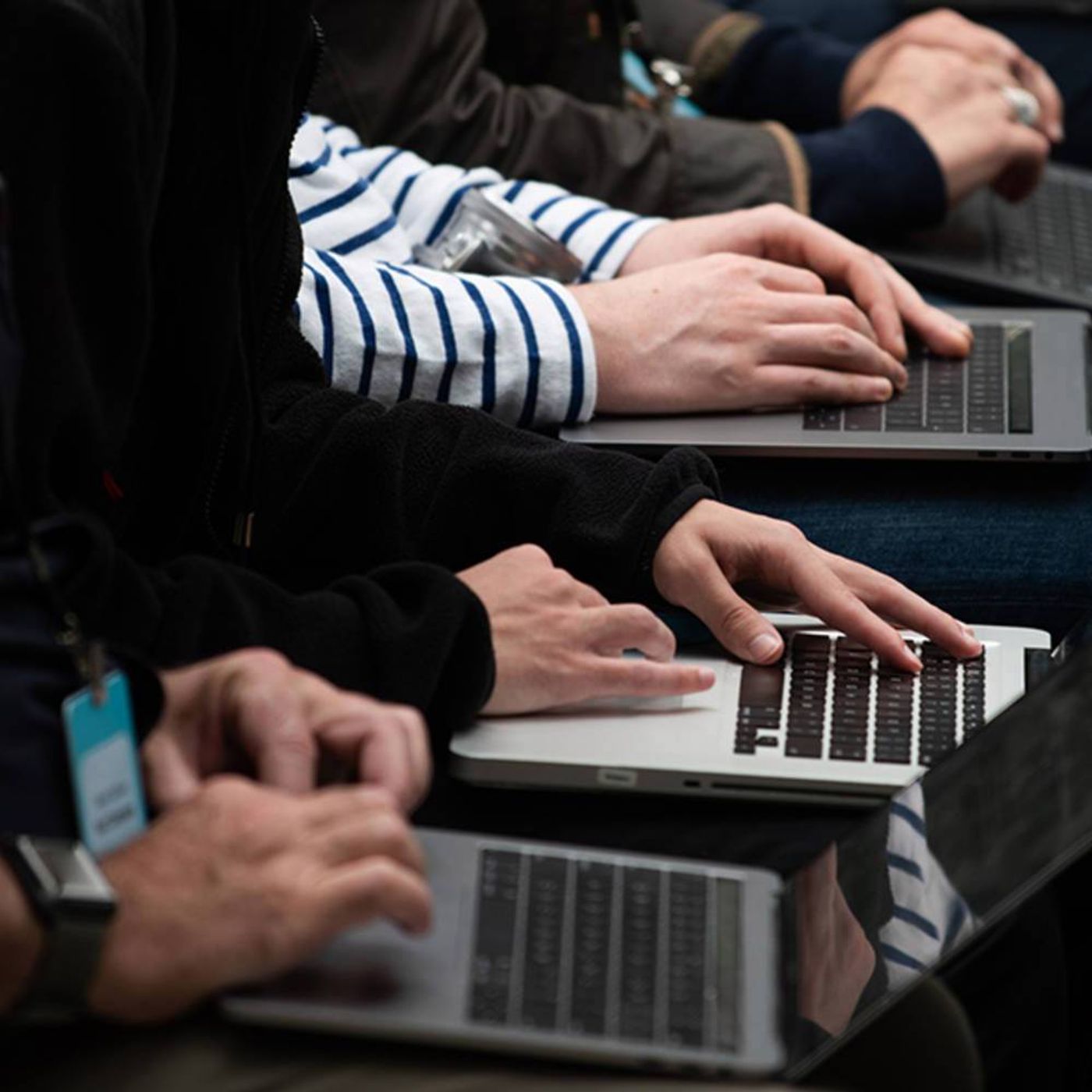
Marketplace TechShould every B.A. include some AI?Colby College is a private, liberal arts school located in southern Maine. You can take classes in art history, chemistry, music, all the staples, and now the school is adding artificial intelligence to the list. Colby is among the first liberal arts colleges to create an artificial intelligence institute to teach students about AI and machine learning through the lenses of subjects like history, gender studies and biology. This, of course, comes as the world is grappling with ethics and AI and how to build a moral foundation into algorithms. Molly speaks with David Greene, the president of Colby College...
2021-02-1608 min
Marketplace TechBanks are getting interested in big data to figure out their climate riskThe Biden administration has made tackling climate change a priority, and a big element of the business story around climate change is risk, to cities, states and countries, to businesses and the banks that invest in all of them. Some regulatory bodies, like the European Central Bank, require climate risk assessment. It's possible the Federal Reserve may eventually as well. Marketplace Tech host Molly Wood speaks with Emilie Mazzacurati, who runs the climate data firm Four Twenty Seven, which was acquired by Moody's last year. It uses big data analysis to help companies and governments figure out the risk climate...
2021-02-1509 min
Marketplace TechMaybe some critical infrastructure shouldn’t be hooked up to the internetWe learned this week that a hacker tried to poison the water supply in a town outside Tampa, Florida. An operator at the plant noticed the intrusion, and there was no significant damage done to the city’s water supply. But the thing is, a lot of our critical infrastructure is connected to the internet, and not all of it is very secure. Molly speaks with Nicole Perlroth, who covers cybersecurity for The New York Times and is the author of the new book “This Is How They Tell Me the World Ends: The Cyberweapons Arms Race." She asked her how...
2021-02-1207 min
Marketplace TechNew antitrust legislation would check the power of tech giantsArguably, the biggest problem with Big Tech is, well, the bigness. A few giant companies gobble up their competition, own the digital advertising and web hosting markets, control the information ecosystem and sometimes control their own rivals' distribution. So far, though, these worries haven't led to regulation. Molly speaks with Sen. Amy Klobuchar, D-Minn., who leads the subcommittee on antitrust and has introduced a bill intended to check the power of tech giants. It focuses mostly on acquisitions, aimed at preventing huge companies from buying potential competitors and forcing companies that control more than 50% of a market to prove that...
2021-02-1110 min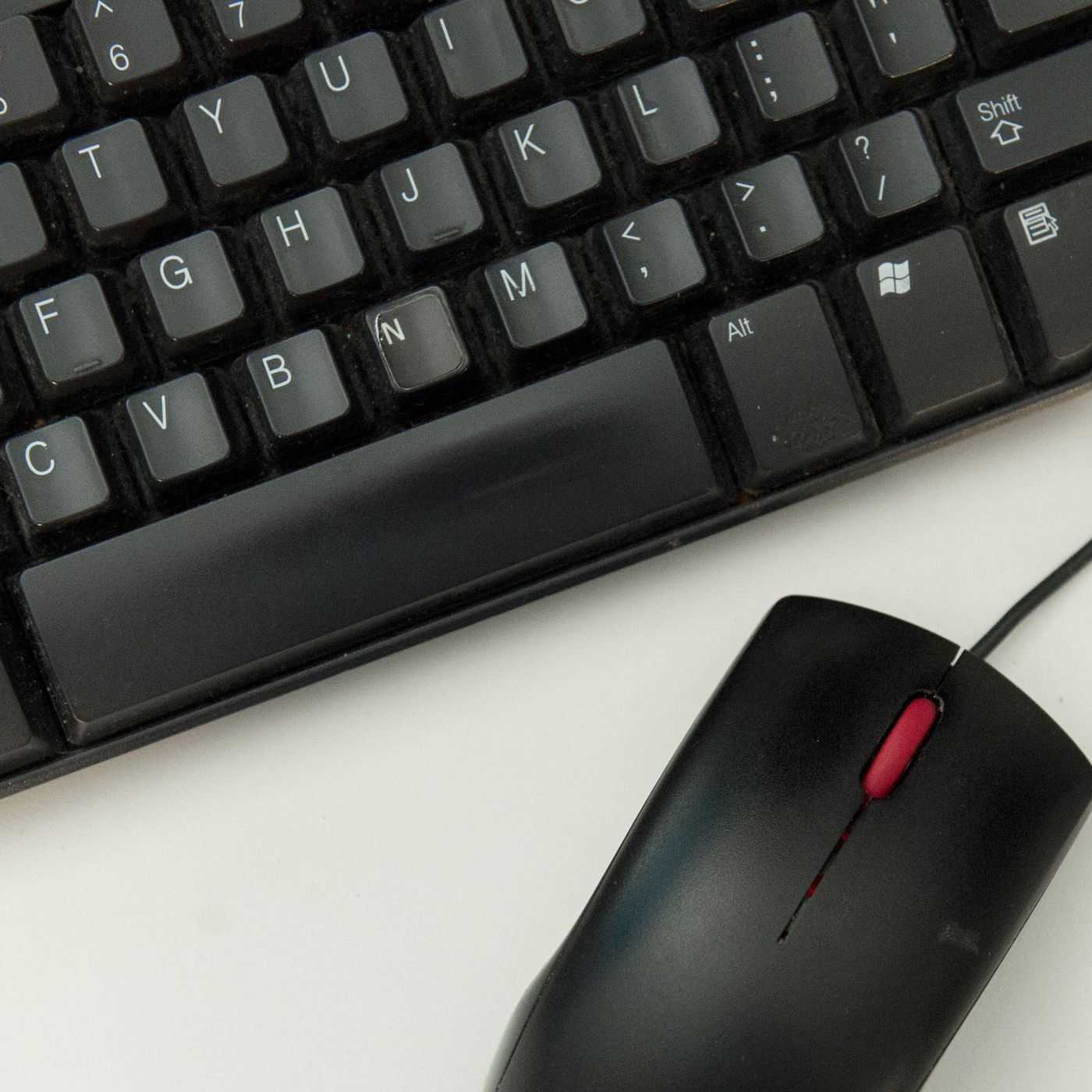
Marketplace TechHow the history of Blackness on the internet was erasedWhen New York University media and culture professor Charlton McIlwain was doing research for his latest book, “Black Software,” he found an encyclopedia about Black inventors, written by Black authors. And it actually said that there wasn't evidence Black people had made tangible contributions to the development of the internet. But McIlwain says that written history ignores decades of Black culture online, including AfroNet, an invite-only bulletin board in the late '80s, that became a haven for Black people to connect and create. Those Black voices played a key role in the online communities that came after. He tells Moll...
2021-02-1012 min
Marketplace Tech$1 billion toward better tribal broadband is just a down paymentWe’ve been talking this week about the digital divide in Indian Country. Reservations lag way behind the rest of the country in terms of access to high-speed internet, but the CARES Act created a billion-dollar fund to help tribes build their own networks. Molly speaks with Matthew Rantanen, director of technology at the Southern California Tribal Chairmen’s Association, which runs a wireless network that provides service to 19 tribes near San Diego. He said that $1 billion will help, but the total cost could be seven times higher.
2021-02-0911 min
Marketplace TechAmazon is getting a new CEO. Will that mean big change or status quo?Amazon’s founder and CEO, Jeff Bezos, announced this week that he’s going to become executive chairman of the company, and the new CEO in July will be Andy Jassy, now the head of Amazon Web Services. Amazon is 26 years old and obviously is massive and has ideas to do everything from package delivery and television production to smart microwaves and artificial intelligence. And its huge and incredibly profitable cloud business. Amazon's ambition and reach are legendary. But with Bezos taking on a new role, could that change? Molly speaks with Brad Stone, a senior executive editor for Bloomberg. He's...
2021-02-0507 min
Marketplace TechSocial media was supposed to give everyone a voice. It didn't.For Black History Month, we're looking at the history of Blackness on the internet. Through most of that history, Black women in particular have been disproportionately harassed and abused. And then ignored when they tried to report that abuse or point out how tech might be misused to further oppress people online and offline. Ignored by tech companies and, it must be said, by journalists, too. Researcher and writer Sydette Harry wrote about this in Wired in a piece called “Listening to Black Women: The Innovation Tech Can't Figure Out.” Molly asked her: "What could the internet look like right now...
2021-02-0416 min
Marketplace TechThe power of transferring technology for climate adaptationA key part of adapting to climate change is prediction. In Louisiana, where water is eroding huge chunks of land every year, that means looking at how increasingly dangerous hurricanes move water and sand, and which areas might flood and which won't. Monday we talked with Dutch scientists who make computer models that help make those predictions. The Water Institute of the Gulf is a research organization based in Baton Rouge that uses those Dutch models to mitigate erosion. Molly speaks with Justin Ehrenwerth, president and CEO of the Water Institute. He said the answers the institute is looking for...
2021-02-0206 min
Marketplace TechThe Biden administration is inheriting working COVID-19 hospital dataOn the first full day of his administration, President Joe Biden signed an executive order designed to ensure a data-driven response to COVID-19 and future public health threats. The administration already faces a big choice around COVID-19 data. In July, the Trump administration directed hospitals to stop sending data to the Centers for Disease Control, and instead to send it to the Department of Health and Human Services. And HHS used the data analysis company Palantir to harmonize the data. At first, it was a hot mess. But by the fall, the system was really working, and now is tracking...
2021-01-2610 min
Marketplace TechInvestment in climate tech is also economic stimulusClimate change is high on President Joe Biden's agenda. Last week, on his first day in office, the United States rejoined the Paris climate accord. Reuters reports he's expected to announce a climate order that will introduce new regulations and make climate change a national security priority. And Biden has tied economic recovery to climate investment — new jobs, new infrastructure and new funding. Molly spoke with Jay Koh, managing director of the private equity firm Lightsmith Group, which is focused on climate adaptation technology.
2021-01-2505 min
Marketplace TechThe failed Plaid-Visa merger is interesting fintech teaThe financial tech firm Plaid announced this week that it’s doubling its workforce in Europe. That is largely because its planned $5.3 billion merger with Visa fell apart earlier this month, after the Department of Justice filed an antitrust lawsuit. Plaid is a platform that lets you, a customer, link your bank account to a fintech app like Venmo or Robinhood. You log in using Plaid's interface, but the bank itself is cut out of the loop. The banks hate that. Visa could have used Plaid to expand beyond payments and maybe be legitimized in the eyes of banks. Molly sp...
2021-01-2109 min